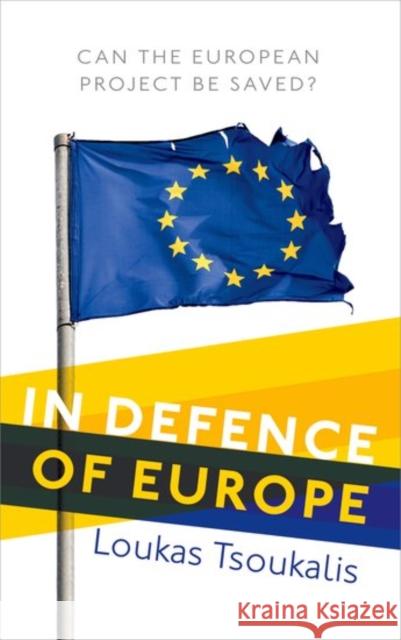In Defence of Europe: Can the European Project Be Saved? » książka
In Defence of Europe: Can the European Project Be Saved?
ISBN-13: 9780198755319 / Angielski / Twarda / 2016 / 280 str.
Europe has not been so weak and divided for a long time. Buffeted by a succession of crises, its collective capacity to deliver has been truly disappointing. In times when the tectonic plates are shifting and tension between global markets and national democracies is rising, can Europe hold together, under what terms - and indeed for what purpose?
The euro crisis has left big scars and is still far from over. The contradiction of a currency without a state will not be easy to resolve. And the combination of high debt with persistently slow growth, large numbers of unemployed in many parts of Europe, and inflation close to zero is hardly reassuring. Meanwhile, economic divergence has grown between and within countries, leading in turn to political fragmentation and the rise of populism.
Europe is in a bind: it is difficult to go forwards and scary to go backwards. In between, it is in an unhappy and unstable state of affairs. How can it accommodate such diversity - and hence prevent Grexit and Brexit? And, looking further afield, a more assertive Russia and a troubled wider neighbourhood exporting millions of refugees may not even allow Europe the luxury to decline in grace.
Drawing lessons from the European success story of the second half of the twentieth century, political economist and former special adviser to the President of European Commission Loukas Tsoukalis now addresses the key choices facing Europe today. He explains how the international financial crisis of recent years has become an existential crisis of European integration. And he asks whether there is an irreconcilable contradiction between Europe's apparent yearning for soft power and the often hard reality of the world outside.











